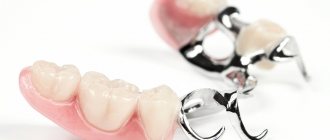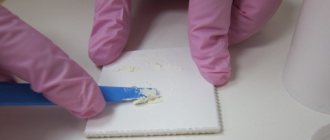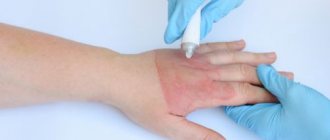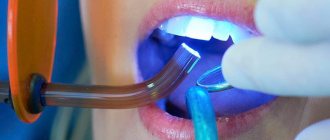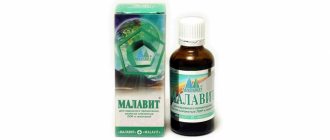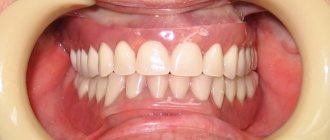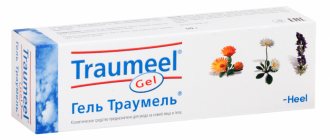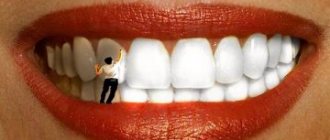An analogue of regular chewing gum is chewing sulfur or, in other words, resin chewing gum. In the process of manufacturing such a product, resin from coniferous trees, in particular larch, is used. This product is rich in vitamins and minerals, and all because it is natural and environmentally friendly. The substance is very viscous and is released in large volumes. Such chewing gum has a number of advantages and disadvantages, which will be discussed in this article.
This product can be used many times. If you don't chew it, store it in a jar of water. When liquefying the wax in your mouth, you can make it harder by breathing in a little air.
What is chewing sulfur and how is it made?
The composition of coniferous wood includes resin, which is a bactericidal agent that heals damage and wounds to the trunk, and has many useful properties. It flows out of every crack formed in the bark. The benefit of resin for wood is to protect it from fungal infections and prevent drying out. Because of its healing properties it is called resin. There are several types of gum resin, which are cut from different trees. Each has its own beneficial properties:
- ointments are made from spruce resin to treat skin diseases;
- cedar - used for preparing balms and tinctures;
- the benefit of pine is that it treats colds and strengthens the immune system;
- Leafy properties are used to improve oral health.
Chewable sulfur has a beneficial composition made from tree resin and essential oil. Until the oil evaporates, the resin is in a liquid-viscous form, but after evaporation it hardens. The same thing happens to resin as a result of exposure to wind and sun: it turns into a yellow or white crystalline substance, forming growths on trees. They can be carefully cut with a knife without harming the bark.
To use sulfur as a useful chewing gum, it is mined during logging. The growths are cut from felled trees. Then they are heated in an oven or on fires, packaged and sold. The disadvantage of tar melted over a fire is that it does not harden and sticks to the teeth. However, it does not lose its beneficial properties. Sulfur melted in the oven hardens and retains the shape of a lump. To chew it, you need to hold the resin in your mouth for a while until it softens.
Advice! Chewing sulfur should be stored in a jar of cold water, which prevents it from drying out and helps preserve its beneficial properties.
Use in folk medicine
Larch oleoresin is widely used in folk medicine:
- For cracked lips, it is necessary to apply this product to the problem area for 3-5 days. It softens well and promotes wound healing.
- For catarrh and stomach ulcers, for dysbacteriosis, it is used orally in small volumes. In this case, the oleoresin is dissolved one pea at a time on an empty stomach before meals.
- For furunculosis, this remedy is applied to a clean piece of cotton cloth and applied to the sore spot. The pain goes away almost immediately, and within a few days this problem disappears.
- Weeping eczema is treated by applying this remedy to the affected areas.
- For cough and bronchitis. It is recommended to infuse the “sulfur” in a glass of water for 24 hours. The resulting liquid is drunk in 3 doses per day.
- For sore throat and inflammation in the throat, resin is absorbed within 24 hours. This will quickly improve the condition.
- For hemorrhoids, use an ointment based on larch resin.
- To soften and remove calluses, corns, and heal cracks on the soles of the feet, resin is also used, which is fixed to problem areas with a plaster.
Composition of chewing sulfur
The benefits of sulfur for chewing directly depend on its composition. The resin, which is the basis of pine chewing gum, contains useful:
- groups of vitamins A, B, C, E, P;
- carotene;
- iron;
- calcium;
- phosphorus;
- iodine;
- diterpene and fatty acids.
We recommend reading: Hemp flour: properties and applications
Chewable sulfur is a natural product that does not contain flavorings, dyes, food additives, sweeteners, or preservatives, which significantly increases its benefits.
Benefits of chewing sulfur for the body
The benefits of larch sulfur for the body are high. This is a strong antiseptic created by nature, which:
- helps relieve inflammation;
- strengthens and supports the immune system;
- protects the body from viral infections;
- normalizes acid-base balance;
- improves the digestion process;
- normalizes blood circulation;
- increases the elasticity and firmness of the walls of blood vessels;
- reduces blood sugar levels;
- protects the body from the influence of cigarette smoke, the smell of paint, gasoline and exhaust gases;
- Helps overcome nicotine addiction and suppress the craving for smoking.
Important! Chewing sulfur is an indispensable remedy during epidemics of viral and infectious diseases and influenza.
Chewing tar, due to its beneficial properties, has a positive effect on dental health. It can be used for preventive purposes as a remedy against periodontal disease, caries, and tartar. The healing properties of sulfur strengthen and heal gums. It whitens tooth enamel, freshens breath and disinfects the oral cavity. Chewing gum made from pine needles is a good analgesic. Therefore, it can be chewed for toothaches.
Chewable tar against smoking
When quitting carousing, cigarettes are often replaced with chewing gum. Replacing it with sulfur helps you get rid of nicotine addiction faster, without causing absolutely any harm to the stomach and other organs. The beneficial substances contained in tar remove nicotine and carbon monoxide from the body. To get the benefits of pine gum for lung recovery, it will take 2 to 3 months.
Chewable sulfur for weight loss
Chewing tar is good for weight loss because its bitter pine taste discourages the false feeling of hunger, which causes many people to take quick, high-calorie snacks. This makes oleoresin much healthier than regular chewing gum, the sweetish taste of which, on the contrary, provokes a feeling of hunger and also harms the stomach and teeth. But chewing sulfur alone will not help you lose weight. This requires a properly structured diet and willpower.
Recommendations before use
Taiga tar or chewing gum made from resin is very sensitive to temperature changes. Therefore, it is best to keep it in warm water before chewing. You can also just put a piece in your mouth and warm it there. Well, then start chewing.
In fact, chewing gum made from larch resin is a natural antiseptic that destroys most bacteria in the oral cavity. It is great for people suffering from diabetes, as it contains no sugar. And for everyone else, chewing gum and tar will not hurt. Does not cause allergies.
Indications for use of chewing gum
Chewing sulfur is good for preventing oral diseases. Experts also advise chewing it for inflammation, gastrointestinal disorders, and to normalize digestion. The use of healthy resin is recommended:
- for children to form the correct bite;
- diabetics, as it has the property of stimulating blood circulation and lowering blood sugar;
- for the prevention of heartburn and other stomach disorders;
- use instead of toothpaste outside the home;
- with constant dry mouth;
- with inflammation of the gums;
- for toothaches;
- as a breath freshener;
- to normalize blood circulation: pine chewing gum helps relieve tension and fatigue, therefore it is recommended for use by drivers.
We recommend reading: Pink peppercorns: beneficial properties, use in cooking
The absence of chemical additives in its composition enhances the benefits of chewing sulfur for the body and minimizes harm. Therefore, the product is absolutely safe even if accidentally swallowed.
Advantages and disadvantages
Chewing sulfur has a huge number of benefits:
- By consuming oleoresin between meals, you not only cleanse your mouth of remaining food particles, but also freshen your breath;
- the resin also strengthens teeth and gums, providing an anti-inflammatory effect; accordingly, this is an excellent method for the prevention of diseases of the teeth, gums and oral cavity;
- the product prevents many diseases, such as caries, periodontal disease, gingivitis, stomatitis, and the formation of tartar;
- has a beneficial effect on the digestive system;
- helps to gently whiten teeth, making them more snow-white;
- oleoresin helps to neutralize and protect the body from the negative effects of harmful factors, such as paint, the smell of gasoline or exhaust gases, tobacco smoke;
- eliminates bad breath even after foods such as garlic and onions; tar also protects you from harmful microorganisms that contribute to the development of viral diseases;
- Helps strengthen the overall human immune system.
The product is absolutely harmless and is even recommended for use by small children instead of regular chewing gum. In children, oleoresin helps to train the chewing muscles, because the resin is much more difficult to chew than ordinary chewing gum and in order to chew it it is necessary to apply force.
Even if a small child accidentally swallows such chewing gum, no unpleasant consequences will occur, since the resin is an absolutely natural product and does not cause irritation to the child’s stomach or intestines.
How to use chewing sulfur correctly
Before chewing hard sulfur, it must be softened by holding it in the mouth for some time. In this condition, it can be applied to the inflamed or swollen gum. In the same way, you can treat wounds in the mouth and relieve toothache. It is not recommended to chew sulfur on an empty stomach; it is better to do it 5 - 10 minutes after eating. Before chewing, rinse your mouth thoroughly.
In order not to cause harm to the gums instead of the expected benefit, you should not use oleoresin when they are bleeding. Prolonged chewing will further worsen the symptoms because it promotes blood flow to the gums.
Consumer Opinions
Reviews from consumers of natural chewing sulfur are quite good, but, unfortunately, it is not possible to buy such useful resin in all regions. Many people note that oleoresin perfectly helps to cleanse the oral cavity of food debris after eating during the day, when it is not possible to brush your teeth, and in its beneficial properties it is in no way inferior to garlic, has the same antibacterial effect and protects the body from viruses.
The only thing worth noting, according to those who use oleoresin as a means to clean the mouth, is to chew it until it begins to crumble in the mouth. This means that you have already extracted all the useful substances from it.
Many have even completely abandoned the regular chewing gum we are used to in favor of such a healthy product. Some users claim that tar helps with overeating, normalizing the functioning of the digestive system, helps with gastritis and has a comprehensive beneficial effect on the body.
If you are trying to quit smoking, but all efforts are unsuccessful, be sure to try such a wonderful product as natural Siberian resin. Tar really reduces the craving for smoking and gradually helps you get rid of this bad habit. This is a natural medicine that nature itself gave us.
Possible harm and contraindications for use
Having a lot of useful properties, chewing sulfur still has some contraindications and can cause harm to the body. But this happens in rare cases.
It is not recommended to use resin:
- with periodontal disease;
- in case of personal intolerance to the components included in its composition;
- if you are allergic to the aroma of pine needles;
- during smoking: the ability of tar to quickly absorb carcinogens leads to them entering the stomach along with saliva.
Therefore, it is worth remembering that, even with great benefits, chewing resin can in some cases cause harm to the body.
Is there resin in larch
Larch resin exudes from cracks and cuts in this coniferous tree. When it comes out, it hardens and protects the larch from insect pests and pathogens, fungi, which can penetrate inside the wood and cause harm. It has a resinous consistency, which is quite thick in structure. Thus, the resin heals wounds on the tree.
Did you know? Rosin and turpentine are obtained from resin and medicinal balms are made. It is obtained mainly from Scots pine (1–1.1 kg/year). The yield of resin from larch is 2–3 times less. The rosin content in the resin is 70%, and the rest
-
this is turpentine (30%).
Hence its second name - resin. It can be obtained by notching the tree during the growing season and collecting it in special containers. This product in Siberia has been called sulfur since ancient times.
Resinous substances and gums in larch (Dahurian) make up about 22.5%, and in pine (Angarskaya) - about 4.6%. The difference is quite significant. This resin content helps the wood to be resistant to decay processes, but at the same time, larch requires special processing, and tools often fail.
